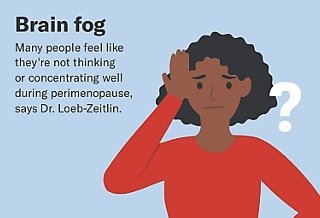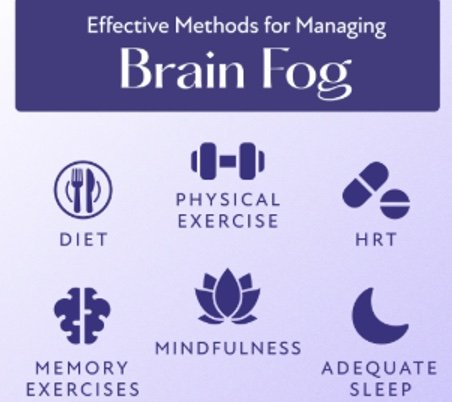Dealing with Perimenopausal Brain Fog: Causes and Solutions
Woman with brain fog!
"Your thoughts feel slower, your focus slips—but it’s not just in your head. As hormones shift, so does your mind. Understanding the changes is the first step to clarity."
The end of a woman’s reproductive age is marked by perimenopause. Additionally, to the numerous physiological changes, brain fog has consistently been considered an unappreciated symptom. Mental fatigue, disorientation, and memory lapse might be the result of these cognitive concerns for multiple women.
During this transitional phase management skills of women can be enhanced, which is done by the identification of the underlying causes of cognitive barriers during the mentioned phase, and this also helps in exploring substantial therapeutic ways.
Understanding Brain Fog During Perimenopause
The individuals suffering from perimenopause, commonly referred to as brain fog, may suffer from problems related to cognitive functions, abrupt focus, forgetfulness, and issues related to memory retrieval. Hormonal variations, particularly progesterone and estrogen, are considered the most vital cause of this issue. Fluctuation in hormonal levels during this transitional phase may hinder the activity of different neurotransmitters, hence disturbing emotional well-being being disturbed.
Factors Contributing to Brain Fog:
Causes of Brain Fog
1. Hormonal Fluctuations:
Many women develop greater stress or worry during this period, which aggravates cognitive issues.
2. Stress and Anxiety:
A notable drop in estrogen might have harmful consequences on cognitive capacity, therefore affecting memory and attention problems.
3. Sleep Disturbances:
Common disorders such as sleep deprivation, insomnia, and night sweats might seriously impair cognitive ability.
4. Lifestyle Factors:
Moreover, worsening mental exhaustion and disorientation might be a poor diet, little exercise, and little water.
5. Underlying Health Issues:
Poor hydration, a sedentary lifestyle, and bad dietary choices might all help to explain cognitive tiredness and disorientation in part.
Solutions for Managing Perimenopausal Brain Fog
1. bioidentical Hormonal Therapies
Though this is mostly theoretical, some individuals might find benefit from bioidentical hormone replacement therapy. Targeting symptoms is how many perimenopause treatments, including bioidentical hormone replacement therapy, work. It also solves memory problems. Finding balance amid hormonal changes might be beneficial. One has to see a doctor to assess this strategy.
2. Regular Exercise
Regular physical exercise has been demonstrated to improve both health and cognitive function. Physical exercise boosts brain circulation and releases neurotransmitters, which improves cognition and focus.
3. Healthy Diet
A diet rich in minerals, vitamins, and omega-3s boosts cognition. Healthy foods include berries, almonds, fresh vegetables, and fatty fish. Eliminating processed foods and sweets may boost energy and cognition.
4. Stress Management Techniques
Research shows that mindfulness, yoga, and meditation reduce stress and anxiety. Particularly during changes, daily mindfulness exercises may help both physically and psychologically.
5. Consult with a Healthcare Professional
A physician should be consulted if one experiences fatigue for a period exceeding a few days. Medical monitoring, personalized treatment, or modifications to your daily routine may be addressed.
Conclusion
Managing cognitive issues during perimenopause may be tough; but, by recognizing the underlying causes and using certain approaches, individuals can regain mental clarity and balance. People may face this time of life with resilience and confidence by prioritizing self-care, making good medical decisions, and seeking support when necessary. It is important to recognize that you are not working alone; numerous resources are available to assist you. BHRT provides a natural, customized method for restoring hormone balance and raising your quality of life. Book your appointment today with Quest 4 Health.





